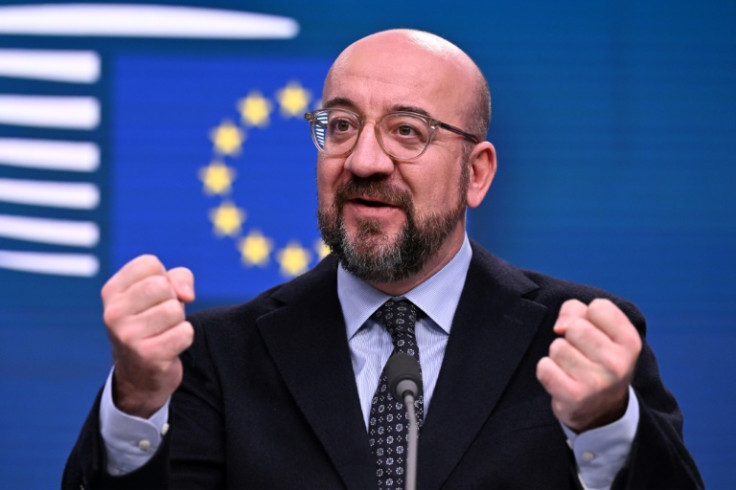
European Council chief Charles Michel announced Friday he was dropping a bid to try and win a seat in upcoming EU parliament elections after coming under "personal attacks".
Michel added that he would now see through the rest of his European Council mandate that ends in November.
Michel, a former Belgian prime minister, had said January 6 he was vying to become an EU lawmaker in European Parliament elections taking place June 6-9 across the bloc.
As a result, and in the event of being elected, he said he would step down as European Council president in mid-July.
That surprise decision created unease in Brussels, given that it could have opened the door to Hungarian Prime Minister Viktor Orban, whose country takes over the rotating EU presidency in the latter half of 2024, serving as temporary European Council head until a successor was named.
Orban, who maintains close ties to Russian President Vladimir Putin, has raised hackles among almost all his European counterparts for blocking 50 billion euros ($54 billion) of EU aid to Ukraine.
A summit next Thursday -- to be chaired by Michel -- aims to persuade Orban to drop his opposition. Failing that, other EU countries have said they are willing to bilaterally give Kyiv the money it badly needs as it defends itself from Putin's offensive.
Michel's initial decision also accelerated speculation and jockeying around top EU jobs to be decided in the wake of the EU parliament elections.
EU Commission President Ursula von der Leyen of Germany, who like Michel was appointed in 2019, has so far kept quiet on whether she intends to seek a second term.
In his Friday statement, Michel emphasised the elections he had taken part in throughout his Belgian political career, and how he saw voting as key to a politician's "legitimacy".
He said his public decision weeks ago to try for an EU parliament seat was "unprecedented -- some would say bold" and "ensured that my intentions were transparent".
But he said it "led to extreme reactions" and "personal attacks" which were "increasingly taking precedence over factual argument".
"On a personal level, it brings me to reflect on the meaning and impact of my electoral commitment to which I have dedicated 30 years of my life, not only for me but also for those close to me," he said.
As a result, he was abandoning his MEP ambition and "I will devote all my efforts to my current responsibilities with steadfast determination until they come to an end".
At the end of his European Council mandate, he said, "I will reflect on the nature and direction of my future commitments".







